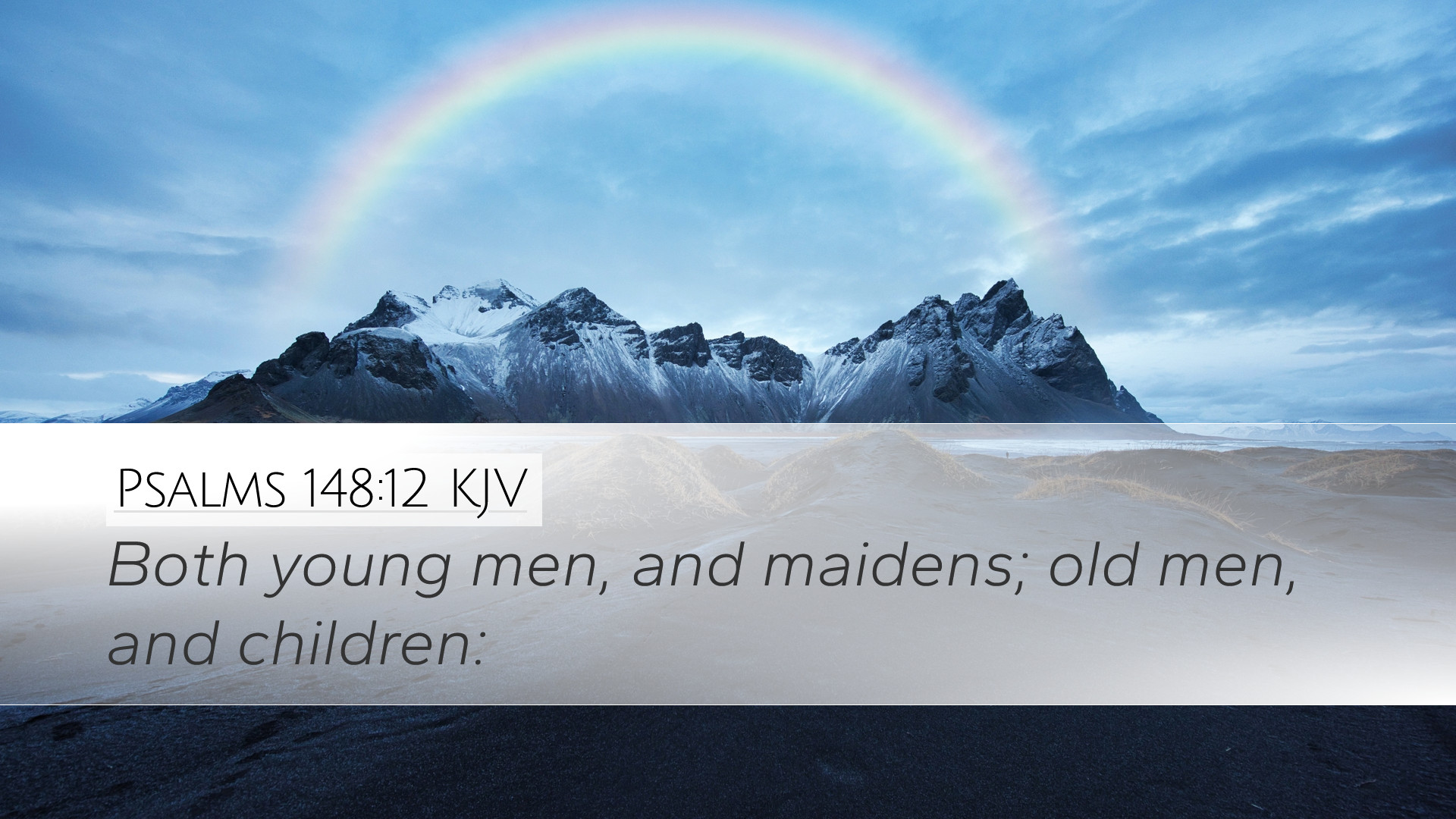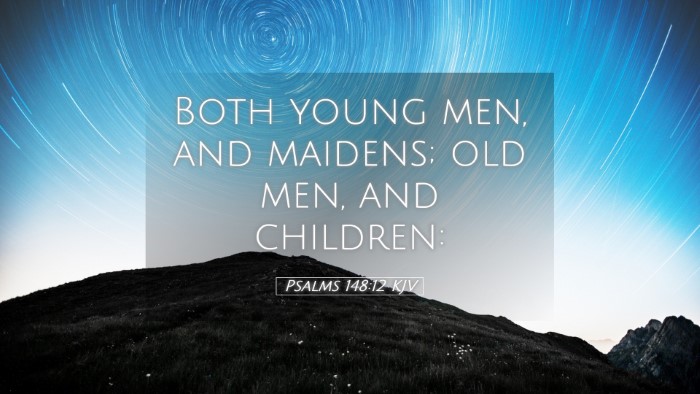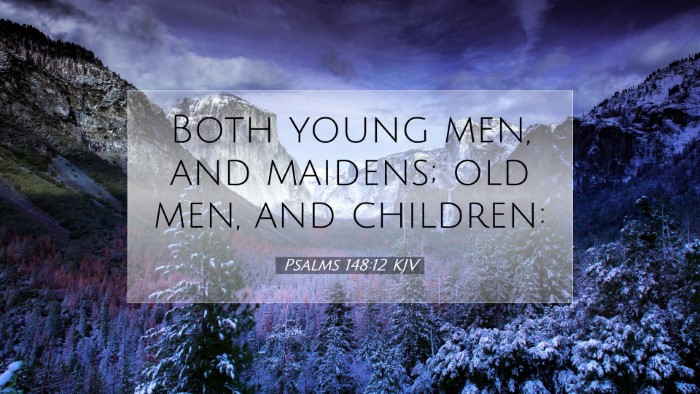Commentary on Psalms 148:12
Bible Verse: “Both young men and maidens; old men and children." (Psalms 148:12)
Overview
This verse is a portion of Psalm 148, which is a beautiful hymn of creation that calls upon all elements of the universe to praise the Lord. It emphasizes inclusivity in the act of worship, indicating that every segment of society is invited to join in glorifying God. This commentary combines insights from various public domain commentaries to explore the significance of this verse.
Insights from Matthew Henry
Matthew Henry emphasizes that this verse signifies the breadth of God’s call for worship. He notes that it includes both the young and the old, illustrating that praise is not confined by age or experience. Henry states:
“In God’s kingdom, every generation has a role in bringing glory to His name. Young men, with their vigor and strength, contribute to the praise of God, while old men contribute wisdom born from life’s experiences.”
This inclusivity shows that the body of Christ thrives when all ages participate in worship. Henry underscores the unique contributions of each age group; youth bring energy, while the elderly offer wisdom.
Insights from Albert Barnes
Albert Barnes highlights the significance that this verse holds for communal worship. He points out that it reflects the harmony and unity of all people in their act of worship. He explains:
“Praise is a duty and privilege that should be engaged by individuals of every stage of life. The Psalm doesn’t just list people but emphasizes the community that exists among worshippers.”
Barnes encourages believers to recognize their part in the larger family of God, which transcends age. This communal aspect helps create a richer worship experience, where shared praises resonate through generations.
Insights from Adam Clarke
Adam Clarke's commentary dives into the practicality of praise among different demographics. He points out:
“Every age has something to contribute to the glory of God. The vitality of youth and the seasoned perspectives of the old generationally link hearts in a common cause: to praise the Creator.”
Clarke also stresses that the verse invites everyone to submit their praises to God, thus establishing a collaborative worship experience inclusive of every life stage. This perspective shows the beauty of diverse voices united in singular worship.
Theological Implications
The inclusion of all ages in the call to praise reveals several theological truths:
- The Universality of God's Creation: Psalm 148 as a whole illustrates the comprehensive nature of creation's praise. Every element—be it celestial beings, natural phenomena, or humanity—has a role in glorifying God.
- The Importance of Intergenerational Relationships: The acknowledgment of both youth and the elderly in worship promotes a healthy communal dynamic where different generations learn from one another.
- The Nature of Worship as Inclusive: God desires all to worship Him, indicating that His grace and salvation are available to everyone, regardless of their stage in life.
Practical Applications
For pastors, students, theologians, and scholars, the message of Psalm 148:12 invites reflection on how inclusivity can enhance worship practices:
- Encourage Intergenerational Worship: Create environments where different age groups can praise together, fostering a sense of unity and family within the church.
- Mentorship Opportunities: Establish programs that allow older and younger members to connect, share experiences, and learn from each other’s faith journeys.
- Inclusive Worship Services: Design worship experiences that reflect the diverse congregation, incorporating elements that appeal to various ages and backgrounds.
Conclusion
Psalms 148:12 serves as a powerful reminder of God’s invitation to all people to participate in the act of praise. Drawing on the insights from Matthew Henry, Albert Barnes, and Adam Clarke, we see that worship is enriched by the voices of both young and old. The interplay of different generations fosters a lively and vibrant worship experience wherein the body of Christ can thrive. As we reflect on our worship practices, let us commit to inclusivity and diversity, recognizing that each person has something valuable to contribute to the glorification of God.


